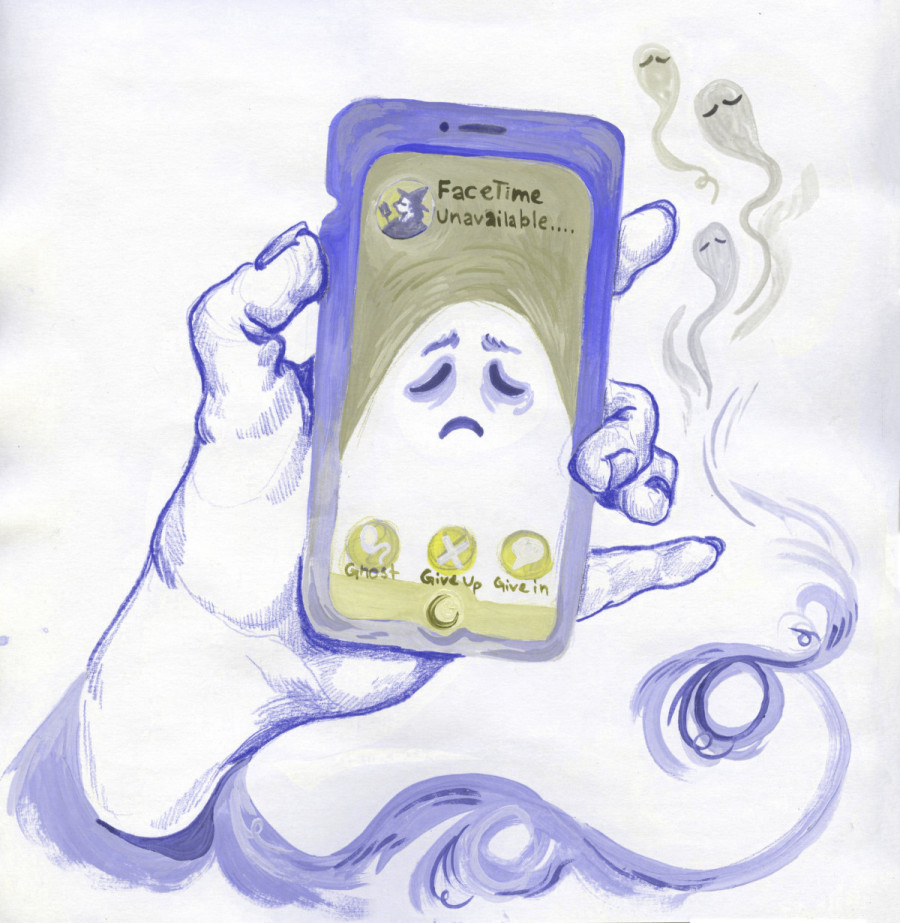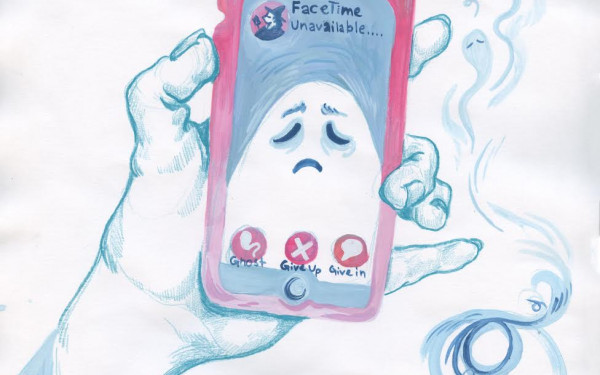In defense of ghosting
It’s okay to cut someone off
The classic saying, “There’s plenty of fish in the sea” could not be more accurate in our current online dating landscape.
Dating apps have allowed us to choose a person by simply swiping right or left. Looking for a hookup? You’re at the right place! Looking for a possible relationship? It might be a bit harder to find, but it could happen! As we get instant access to a larger pool of possibilities, picking the right person for the type of relationship that we are looking for becomes harder.
With this increase in access to people’s rapid-fire profiles, a new norm has taken root: ghosting.
Ghosting is the art of letting someone down by simply never having contact with them again. You may be left wondering why people simply disappear without any explanation. You may ask yourself questions like: Is it me? My personality? Something I’ve done? The answer to all these questions is often no.
The reason behind ghosting is different from one person to another. Ghosting has saved a lot of people, including me, from very awkward situations. For me, ghosting has mostly been a mix of self-preservation and fading connections.
As someone who had a non-existent romantic life before the age of 19, dating apps were the first place I turned to. A naive girl on dating apps in the middle of a pandemic, what could go wrong? Navigating the online dating world has been a constructive experience.
My first time ghosting someone was due to a very unwanted picture of a man’s package. I’m sure that many can relate to the terrifying view and surprise. In terms of self-preservation, I’ve ghosted people for simply giving weird vibes, and as a woman, I will always follow my gut as safety should be my number one priority.
As ghosting has increasingly become a norm on dating apps, debates on the practice have been endless. Ghosting is an easy thing to criticize, especially when you’re the one on the receiving end, or rather, the lack of receiving a direct message at all. It can be perceived as inconsiderate and hurtful, but what if it is a justified action to take?
In my experience, an instance of failed connections is the common cause of ghosting, and this is how the story usually goes. After talking with someone for a week or two, I’m ready to go on a date, so I ask them out. As the day approaches, I transform into a ball of nerves. It’s a mix of excitement and pure stress. I plan my outfit and my hair multiple days in advance. I practice how to start the conversation and how to fill the awkward silences.
D-day arrives and anything can happen. I get to the date, and it goes great! I have a nice time, they laugh at all my jokes, we eat good food, and at the end of the night, we even end up kissing. We go our separate ways, and a glimpse of hope regarding a possible connection appears. Sadly, after a less successful second date, the vibe simply fades away, and the spark is just not there.
In this case, ghosting can be a natural way to fade out without creating unnecessary drama. While closure can be good in many ways, it can also lead to complicated situations.
At times, ghosting doesn’t come from a bad place but can be a result of someone’s inability to control their emotions or handle unpleasant situations. While healthy communication is an easy thing to preach, putting in the effort and having the courage to practice it every day can be arduous.
This article originally appeared in Volume 44, Issue 2, published September 19, 2023.







